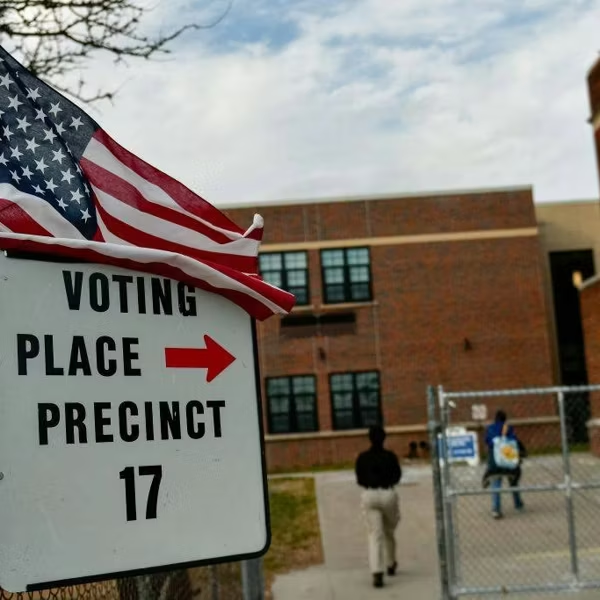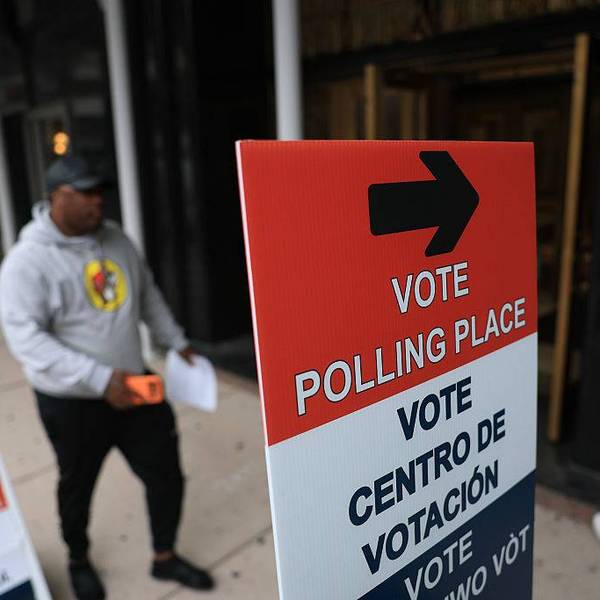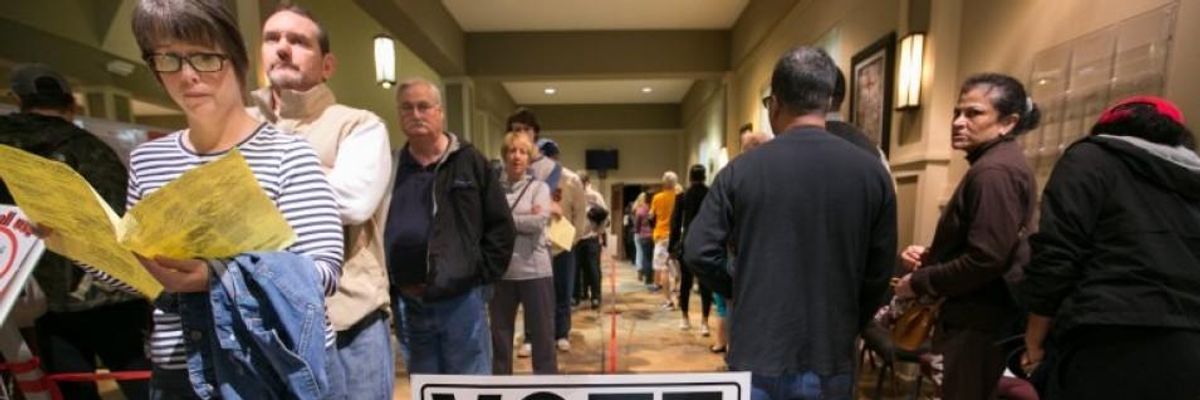As the U.S. continues to grapple with the unfolding COVID-19 coronavirus outbreak, the 2020 presidential campaign has come to a standstill, and some states have been forced to postpone their primary elections over concern that in-person voting could accelerate the spread of the virus.
While Florida went ahead with its March 17 primary, there were reports of poll worker shortages and unopened polling places. In Palm Beach County, for example, 800 polling place volunteers backed out because of health concerns, according to the Associated Press. However, the state still saw a higher voter turnout than in 2016 because of accommodations including the expansion of voting by mail and the extension of the of early voting period.
The Florida Democratic Party reported that over 140,000 more Democrats voted by mail this year than in 2016. The party also said more than 70,000 more Democrats voted early in person this year than 2016.
"Early voting and vote by mail, a lot of people were using those two tools because of the fear of the coronavirus," said Florida Democratic Party Communications Director Luisana Perez.
Voting rights advocates are calling on lawmakers to extend similar measures to the rest of the nation. There are still 11 more Democratic presidential primary dates when voters in 26 states and territories will cast ballots. Ten states along with Puerto Rico recently postponed their primary elections due to the national health emergency. They include the Southern states of Georgia, Kentucky, and Louisiana, which will now hold their respective primaries on May 19, June 23, and June 20.
The Brennan Center, a voting rights advocacy group, offered a detailed plan to help curb the pandemic's impact on the elections. The preliminary estimate of the plan's cost is $2 billion.
"This would be a massive undertaking but I think it's absolutely necessary to make sure that we are prepared to run our elections in November, and I think all the problems we have been having in primaries in the last few weeks is evidence we need to start now," Lawrence Norden, the group's election reform director, told The Hill.
Civil rights groups including the NAACP, Fair Fight Action, and the Leadership Conference on Civil and Human Rights agree with the Brennan Center that a minimum of $2 billion is needed to properly safeguard the upcoming elections amid the pandemic.
But the $2 trillion coronavirus relief package now being finalized by Congress doesn't include nearly that much. The Republican-controlled Senate's version initially included just $140 million for election protections, but Senate Democrats successfully fought to increase that to $400 million. The Democratic-controlled House is expected to approve the package.
Critics worry that's not enough to adequately support the substantial modifications needed to secure this year's election. "This is seriously insufficient to get the job done in November and have an election that is healthy and fair for all Americans," Wendy Weiser, director of the Brennan Center's democracy program, told the New York Times.
In a letter sent to members of Congress on March 22, numerous civil rights and other progressive advocacy groups including the Brennan Center set forth a list of policy measures to ensure that voters will not have to choose between participating in this year's election and protecting public health. Their recommendations for states:
- Expand voter registration by making online registration and same-day registration available in all states, and extend voter registration deadlines.
- Expand early voting options and allow at least two weeks of early in-person voting to reduce lines on Election Day.
- Make mail-in ballots available to all registered voters, and offer a variety of methods to request them, including online, in person, by phone, and by mail. Postage should be free or prepaid by the government. Allow community organizations to help collect and deliver completed and sealed ballots. Count all ballots postmarked by Election Day.
- Ensure polling places follow protective public health procedures set forth by the Centers for Disease Control and Prevention, including adequate sanitization and social distancing.
- Launch mass voter education campaigns to inform the public of changes to policies and practices, and combat any misinformation efforts that would suppress voter turnout.
"Now is the time for Congress to unite across differences to make sound policy choices that provide funds and voting policy guidelines that ensure equal access and participation," the letter stated. "We do not have to, and indeed we must not, choose between public health and a functioning democracy."




